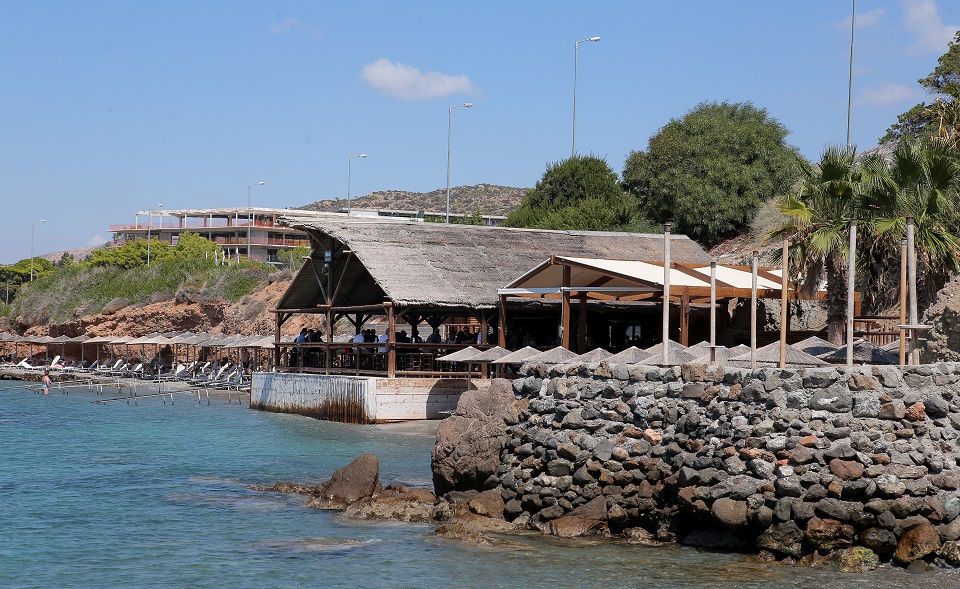Island lawlessness and the media’s impact

Unlicensed construction and all manner of violations, transgressions and outright real estate-related crimes have historically been the norm rather than the exception in many parts of the country, especially in areas with a lot of tourism.
The spotlight has recently been turned on businesses on well-known islands from Mykonos and Rhodes to Paros and Naxos that exploit sections of beaches with illegal constructions and occupy communal spaces, where they place sunbeds and umbrellas.
With few exceptions, these phenomena largely go unpunished. State authorities either do not want to take action – bribery being a common practice – or are unable to do so, as on some islands, only one or two police officers serve to oversee everything and everyone, resulting in an uncontrollable situation.
In this environment of lawlessness and often fear, citizens in popular tourist destinations across the country have decided to take matters into their own hands.
Sporadic reactions by local communities against lawlessness and shameless exploitation on beaches have always taken place, but now they are becoming more organized and coordinated.
The state is a bystander. The substantial absence of an opposition does not help, as internal divisions prevent it from effectively fulfilling its role of oversight.
Nevertheless, we have seen a quicker response from the competent authorities compared to the past.
In this new setting, the media play a significant role. The actions taken by the government and local authorities are greatly influenced by how such trespasses are presented to the public. When it is done in a way that is serious, knowledgeable and consistent, it becomes effective.
The media outlets that have demonstrated sincere sensitivity to environmental and growth issues, especially on the islands, are well-known. Recently, they have been proactive and, with their influence and credibility, are not only contributing to but also shaping developments.
We are no longer in the realm of theories or general accusations. Actions are already being taken: arrests, bans, fines, demolitions.
With legal licensing and a proper operating framework for the businesses on beaches being the goal, the inevitable question arises: Will exposing transgressions and crimes, the mobilization of citizens, and ultimately, the response of the authorities lead to real punishments and changes in mentality and behavior?





